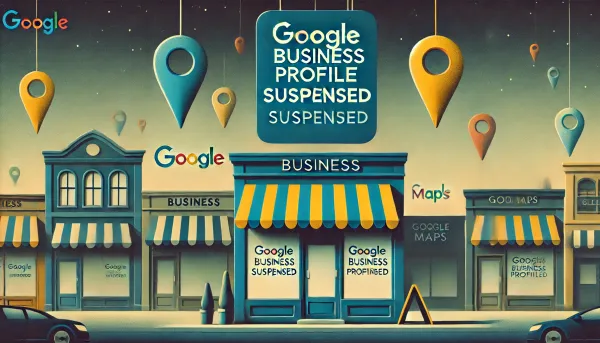Best E-commerce Website Builders

There are a lot of elements to manage with web businesses, from designing your website to putting up product pages and learning how to sell to your online consumer base. We've tried almost every e-commerce site builder available. This guide aims to offer a solution for you, whether you're starting a business from the ground up or expanding your existing brick-and-mortar firm online.
1. Wix:
Wix is a popular choice among most users since it's simple to use and includes everything you'll need to start an online business at a low cost. When you sign up, you'll get a free domain name for the first year, unlimited product listings, and access to over 975 templates to help you get started designing your website without having to start from scratch. You may get started for free with Wix's free-forever plan to give it a try before investing any money.
· Abandoned cart recovery
· Optimization for mobile devices.
· Wix chat
· Dozens of payment options.
· International shipping is available.
· Discounts and coupons are available.
· Features of the restaurant (online orders, reservations, menu).
· Management of tickets and events.
2. BigCommerce
BigCommerce is a well-known and reliable e-commerce platform. It's also quite adaptable. Bulk pricing rates, quotation administration, client groups, and custom price lists are among the B2B-specific capabilities. BigCommerce focuses on selling through several channels. Every package includes the option to sell on social media platforms such as Facebook, Instagram, Pinterest, Google Shopping, eBay, Amazon, and POS. You can automate your sale-oriented posts and maximize conversion by using a social media scheduling tool like Postly.
BigCommerce should be at the top of your list if you want to take advantage of multichannel commerce. The website builder is incredibly user-friendly and features a drag-and-drop interface that makes it simple to create a website.
It is not that much easy to use and learn compared to Wix. BigCommerce, on the other hand, is ideal if you want access to a wide range of e-commerce and website customization tools without having to pay extra for applications or extensions.
3. Squarespace:
Unlike most traditional website builders, Squarespace includes e-commerce capability as standard in all of its plans. However, their stunning and award-winning template designs may be the reason most people adore them.
It makes no difference whether you're a seasoned pro who enjoys diving in and customizing a website to your exact design specifications or a total novice who simply wants a great-looking website straight from a template.
Squarespace allows anybody to create a modern and visually attractive e-commerce business.
It features several award-winning templates that are tailored to online retailers. And the tool features a solution for selling items, services, subscriptions, and digital goods.
4. Shopify
When you consider the number of options offered, Shopify is surprisingly simple to use. However, its system is adaptable enough to suit projects with special requirements. If you need to, Shopify can scale up as well (e.g. your online store needs to grow). Another significant benefit of Shopify is the large user community and developer ecosystem that supports the product. For example, there are hundreds of Shopify applications available to increase the platform's capabilities.
· Customization tools and themes
· Shopify's straightforward shop setup procedure allows for a quick start.
· Payments are built-in via Shopify Payments, or you may use your processor.
· Inventory management tools
· Shopify Shipping has built-in shipping label printing.
· Facebook Shops, Facebook Messenger, and Instagram are all fully functional social commerce platforms.
· Amazon and eBay sales are integrated into a multichannel sales strategy.
· For shops who want to sell both in-store and online, Shopify offers a complete POS solution.
5. 3dcart:
3dcart is a straightforward shopping cart for internet merchants. Its capabilities aren't as broad as those of Shopify or Wix, but it's a go-to builder for store owners looking to be online quickly thanks to low pricing, decent sales data, and mobile-responsive themes.
While 3dcart includes several useful e-commerce tools, you don't have a lot of creative control over your shops. The builder might be difficult to use, and the templates are restricted.
The following are some of the features:
· There are 160+ payment alternatives available, all of which may be incorporated with your store without requiring any code.
· There are over 90 free templates to help you get started with your website.
· SEO capabilities built-in to boost a website's search exposure.
· Notifications of abandoned carts to aid in the recovery of lost sales.
· Good Zapier connectors that help you increase the functionality of your store.
6. GoDaddy:
GoDaddy is well-known as a website builder, but it can also be used to set up an online store. The builder provides a beginner-friendly setup that leverages artificial design intelligence to make e-commerce site creation quick and simple. It uses the data you provide to generate a personalized webpage in minutes.
The disadvantage is that you don't have a lot of creative flexibility. GoDaddy has tools for search engine optimization and email marketing campaigns, but its functions are limited. Even though you can get up and running quickly, a GoDaddy website can only offer up to 1,500 goods. So, if you're searching for scalability, GoDaddy isn't the finest e-commerce site builder for you.
Questions to consider while selecting an e-commerce website builder:
· Budget, planning, and pricing are all important considerations. How much are you willing to spend on your shop each year? What are your expansion plans?
· What level of technical expertise do you possess? Although many builders employ drag-and-drop technologies to assist you in creating the ideal e-commerce site, you'll still need some fundamental abilities to design product pages, add goods to your shop, and set up any applications or plugins. Think about how much software you've worked with before.
· Do you wish to only exhibit your items on a simple website? Or do you want more sophisticated capabilities such as adding sizing charts to product pages and a live chat window?
· If you're new to creating an e-commerce website, you'll almost certainly want assistance. Is there live help and tutorials available for the site builder you want to use? Consider a platform that can assist you in swiftly and simply resolving issues so you can launch your store and begin selling online.
· Payment gateways are required to securely take payments from consumers and to make payments simple for shoppers.
Hope that this overview of e-commerce builders and questions to ask when selecting the best e-commerce website builder has given you the information you need to continue forward.





